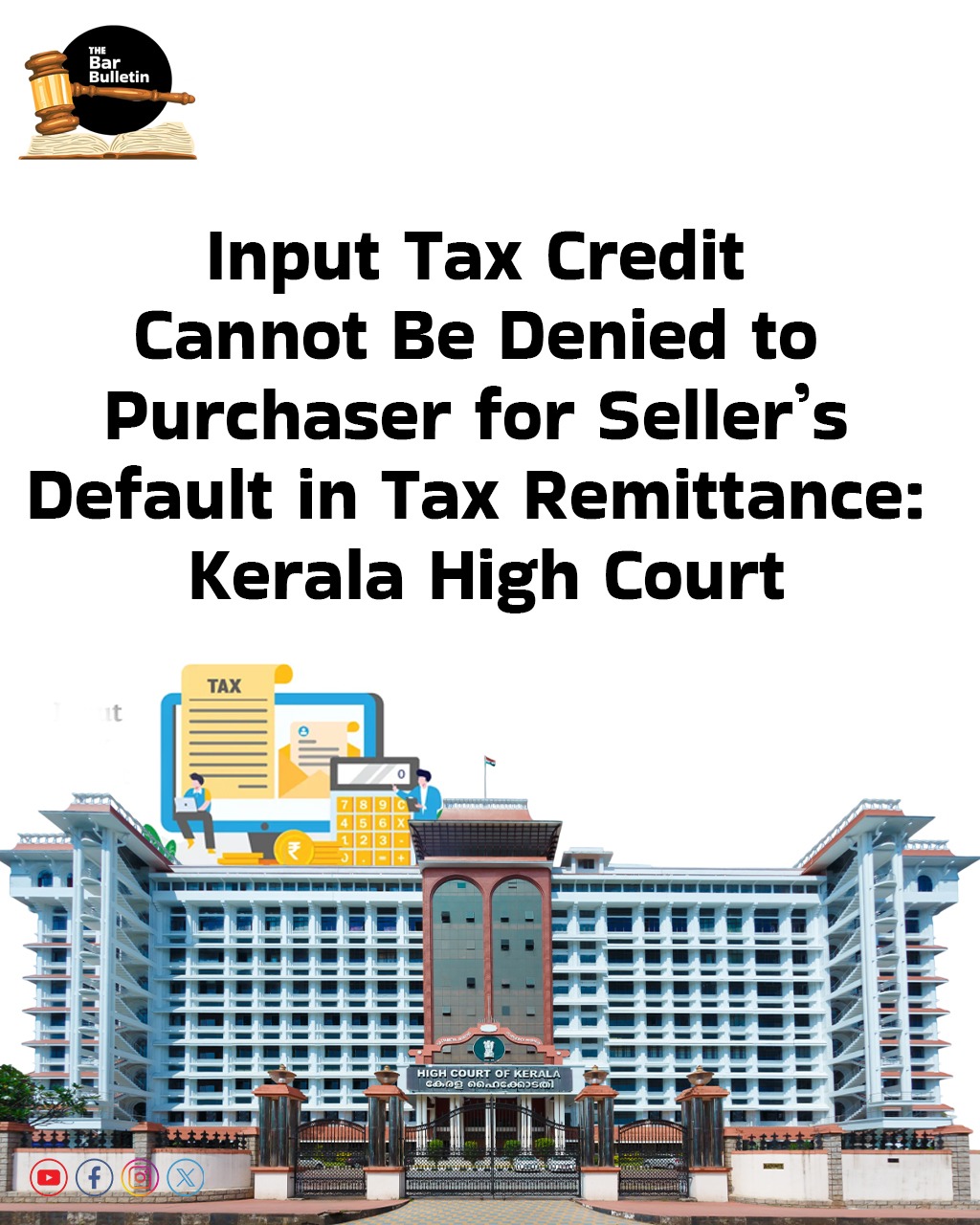The Kerala High Court had recently ruled that input tax credit (ITC) can be legitimately availed by the purchasing dealer under the Kerala Value Added Tax Act, 2003 (KVAT), even in cases where the selling dealer failed to remit the tax due to the government, provided that the purchasing dealer has strictly complied with all statutory requirements including possession of genuine tax invoices as required under the statute. The Court also emphasized that the responsibility for recovering unpaid tax lies properly and primarily with the tax authorities, who must proceed against the defaulting seller, rather than against the innocent purchasing dealer who has fulfilled all obligations imposed by the KVAT Act.
The Larger Bench comprising Justice Devan Ramachandran, Justice Gopinath P., and Justice Mohammed Nias C.P., observed that comprehensive credit mechanism established in Section 11 of the KVAT Act, contains no requirement, either express or implied, linking credit eligibility to the selling dealer’s tax remittance, with the exclusive and exhaustive grounds for denial being confined solely to the purchasing dealer’s documentary compliance rather than to the selling dealer’s subsequent actions or omissions. Thus, the Bench clarified that ITC should be available to purchasing dealers even if the selling dealer fails to remit the tax.
Speaking for the Bench, Justice Mohammed Nias C.P. referred to Section 2(xxiii) of the KVAT Act that provides the foundational definition of “input tax” as tax “paid or payable” by a registered dealer on purchases made in the course of business. This definition assumes particular significance as it employs the disjunctive “or,” thereby creating two alternative and independent bases for credit entitlement, clarifying that ITC arises from either the actual payment of tax or the legal obligation to pay, irrespective of whether the seller later remits the tax to the government.
The legislative intent is clear that the VAT system is designed to avoid cascading taxation by ensuring uninterrupted credit flow, providing the revenue department with comprehensive and effective tools for recovering taxes from defaulting dealers, thereby creating a complete and self-contained system for addressing seller non-compliance without penalising compliant purchasing dealers, added the Bench.
Therefore, the Bench concluded that denial of ITC results in unjust enrichment for the State, as it effectively collects tax twice, once from the purchaser (through disallowed credit) and again from the seller (via recovery proceedings), and it also imposes an impractical burden on purchasers to monitor their sellers’ tax compliance, which is neither legally required nor feasible in normal business operations.
In this case, the registered dealers under the provisions of the Kerala VAT Act had been denied ITC on certain purchases made from registered selling dealers who, though having issued proper tax invoices and collected the tax component from the petitioner, subsequently failed to deposit the said tax amounts with the government treasury.
Appearances:
Advocates J. Jaikrishna and C.S. Arun Shankar, for the Petitioner
Government Pleader, for the Respondents



